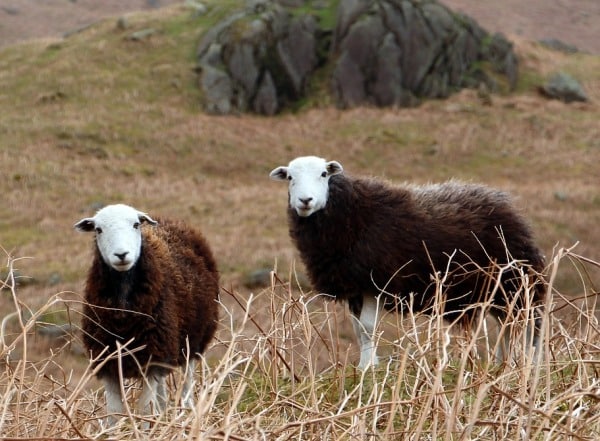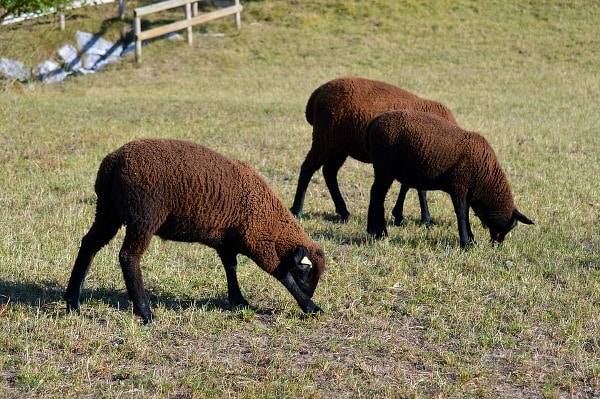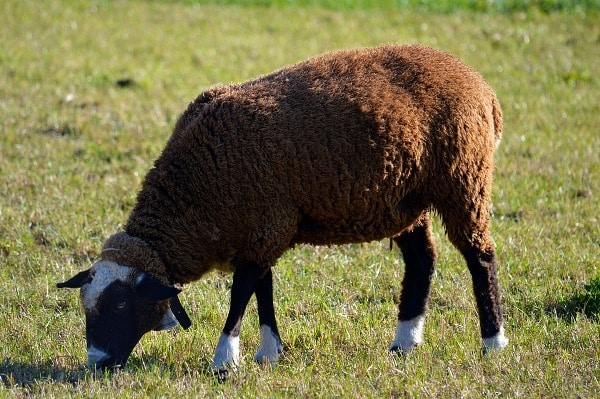Introduction to Sheep farming in Maharashtra
In the socio-economic life of rural people, Sheep farming plays a vital role the Sheep farming has become the main source of income for the landless, labour and marginal farmers. It is believed that the total Sheep population of 1.5 crores in Sheep farming in Maharashtra. For the total Sheep population in India, Maharashtra contributes 8 %. The propagation of the good Sheep breed and conservation is the main object of Sheep farming. In Maharashtra, not only native breeds are reared also the neighbouring state Sheep breeds are also reared.
Scope and Importance of Sheep Farming:
In the national economy of India, Sheep farming plays a major role. The total Sheep population of India is 80.25 million. At the initial stages, the employment will be small, gradually when the demand for the Sheep increases the returns will also increase. As meat lovers are increasing the demand is also increasing. The initial investment in Sheep farming is very low.
Loans and Subsidies for Sheep Farming in Maharashtra:
Among all other livestock business, Sheep farming is one of the most profitable business. The country which produces the meat and milk in large amount is India. The farmers who are economically back while setting up the Sheep farming business, those farmers will get assistance from both the central and state government. There are many schemes for outlining the loans and subsidies for the farmers.
The farmers get assistance from the NABARD, the loans and subsidies are sanctioned as per the region of form and size of the project. For more information on can visit the rural, co-operative banks or else they can visit the official website of NABARD.
Advantages of Sheep Farming:

- These Sheep are used in hilly areas for hauling.
- For every unit of investment, the Sheep give us better production
- These Sheep don’t need a particular climate they can tolerate all types of climates.
- The Sheep are slaughtered at a very young age.
- As the Sheep don’t have any religious taboo, so these Sheep are relished by all sections of society people.
- They are very cheap to maintain and can also be maintained very easily.
- Sheep milk has high demand in the market.
- When compared to cow’s milk the Sheep milk has high demand in the market.
- The milk of Sheep will help us in good digestion and it is also very nutritious.
- The Sheep have very few housing demands, as they can adjust with any other livestock or else with the owner also.
- The Sheep can be handled easily
- Not only the Sheep have high demand, but also the products that we get from the Sheep also have high demand.
- The Sheep have higher digestibility, so they can be fed with crude or any type of roughages that are poor in quality.
- The Sheep are known as social animals.
- These Sheep can be raised by children, women and also agricultural labour.
- The initial investment in Sheep farming is very low.
- The Sheep milk is capable of curing all the health problems like diabetes, cough, asthma etc.
Read: Sheep Farming In Karnataka.
Sheep Breeds of Maharashtra:
Deccani Sheep Breeds: This breed is majorly found especially in the Pune Division.
Sheep Feed Management:
As the sheep function, multi – purposely so they are called the ruminant animals. Feed management plays a major role in sheep farming. If a person is successful in sheep farming then feed management plays a major role in sheep farming. But while farming the sheep the farmer should have basic knowledge of sheep farming and also the feed for the sheep. Extra care should be taken for the pregnant sheep and also the milch sheep. The feed should be provided to the sheep as per the age and the season. For every age and season, the feed for the sheep will be changed.
Garden and Kitchen Scrap: For a good diet the sheep can be fed with garden and kitchen scarp. All the cutting waste of fruits and vegetables can be fed to the sheep. These scarps are loved by the sheep as they are a good source of energy and also nutrients. The kitchen scarp that can be fed to the sheep are onion peels, tomato ends, banana peels, garlic skins and orange peels.
Hay: The hays are an important source of nutrients for the sheep. The hay which doesn’t contain mold in it should be fed to the sheep. The hay which is fed to the sheep should be of high quality. In weedy hay, large amounts of nutrients are contained, so they should be fed to sheep. The hays which are fed to the sheep are Lespedeza, clover and alfalfa.
Grains: when we don’t find or get any kind of feed for the sheep they can be fed with grains up to 12 – 16 % of the course. By feeding the creep feed and complementary feeding to the sheep their weight can be increased. Cereal grains can be fed to sheep as they are good sources of carbons and energy. The grains that can be fed to the sheep are barley, rye, moil, oats and corn.
Pasturing and Browsing: These pastures and browsing as a good source of nutrients for the sheep. In high amounts, proteins and energies are enclosed in the pastures. These will help the sheep in increasing their digesting ability and tastiness. The mixtures of pasture are done with sorghum, grass, grain, clover, Bahia grass, millet, and Sudan grass.

Along with all these the sheep can be fed with
Tree fodders for Sheep:
- Karuvel
- Vagai
- Glyricidia
- Neem
- Subabul
- Arasu
- Seemaikaruvel
- Kodukapuli
- Velvel
- Agathi
Concentrated feed:
- Sorghum
- Broken rice
- Wheat
- Groundnut cake
- Maize
- Salt
- Mixture
- Skimmed milk powder
Read: Backyard Fish Farming.
Sheep Housing Management:
- There should be good ventilation on the farm.
- The farm should have a good floor, the floor should always be dry.
- On the farm, there should be a good drainage facility.
- The farm should be constructed at a higher elevation so that there will be no problem when the floods attack the farm.
- The rainwater should never enter the house.
- The Sheep should have enough space for taking a rest on the farm.
- In all seasons the Sheep should be provided with warm water as they are afraid of cold water.
- The Sheep waste should also be collected on the farm.
- The house should be hygienic and dry.
- The labour which is required for the farm is very less in number.
- The main motive of housing is to protect the animals from harsh animals and also the uneven or inoculated environmental stress.
- The Sheep have some physiological requirements for their growth and productions as like human beings.
Sheep Breeding Management:
Breeding plays a major role in the Sheep farming business. The breeding will be helping the farm to increase the population as that brings more profits to the farmers. The Sheep can adapt themselves to any type of climates as they are hardy and adapt themselves. In Sheep farming, breeding is an essential task to get high returns in Sheep farming.
There are two types of breeding techniques. They are:
- Natural insemination: This will take a long time and it is not suitable for commercial Sheep farming.
- Artificial insemination: This will be suitable for artificial insemination, but it is a little cost-efficient, but process faster than natural breeding.
- The breed should be identified by analyzing their body temperature and also the bloodlines of the Sheep. We should also determine the Sheep breeding efficiency.
- Consideration of product units should be done through the age of the Sheep.
- Before breeding season, the Sheep should be prepared by trimming their hooves, deworming them and also vaccinating them.
- The Sheep should be encouraged at the age of 5 – 17 months. The best time for the breeding is at the age of 10 – 12 months. The breeding should not be done at a young age.
- The house or the pen which is used for sheltering the kids should be clean and dry, they should be good airflow. The bedding should be arranged with dry straw.
- The season for the breeding of Sheep is:
- Summer – the heating season for the Sheep are in the month of March – April, kidding season of the Sheep should be in the month of August – September.
- Rainy – the heating season for the Sheep are in the month of June – July, the kidding season of the Sheep should be in the month of November – December.
- Winter – the heating season for the Sheep are in the month of October – November, kidding season of the Sheep should be in the month of January – February.
- The breeding ratio of the Sheep is 1:25 i.e. one male: twenty-five females.
- While the breeding process the gestation period of Sheep is very short i.e. 150 – 155 days.
Sheep Diseases and Vaccinations:

- If the Sheep can be attacked by any diseases, they should be vaccinated by consulting a vet doctor.
- The Sheep should be observed regularly based on their physical activates or behaviour.
- The Sheep should care a little more so else it might lead to a big loss of Sheep and kids. For preventing the Sheep from diseases the farm should be hygienic and also be cleaned regularly.
- The feed which is of good quality should be given to the Sheep.
- The Sheep hooves should be trimmed regularly or else this may also cause diseases to them.
- For every 6 – 4 weeks the Sheep’s hooves should be trimmed. Sheep should get plenty of sunshine on the farm.
Read: Agricultural Soil Testing.
Diseases of Sheep:
- Fluke infection
- Tapeworm
- Tick, lice
- Brucellosis
- Pneumonia
- Footrot
- Peste Des Petits ruminants
- Foot and mouth diseases
- Haemorrhagic Septicemia
- Anthrax
- Enterotoxemia
- Mastitis
- Coccidiosis
- Roundworm
There are two types of vaccinations that can cure the diseases:
Inactive Vaccinations:
The inactive vaccinations are also called dead vaccines. These vaccines target the organism directly as this will treat the organism until it gets inactive. These will also produce toxins and then these toxins are called toxoid inactivation.
Live or Active Vaccinations:
These vaccines will target the organism, directly until the organism loses its virulence. These vaccines are capable of holding or retaining the, to provoke the immune of the Sheep which is targeted.
Tips for Sheep Farming In Maharashtra:
- If a new farm is starting, then the farmer should know the basic knowledge of rearing Sheep, Sheep breeds and also about the Sheep breed.
- The Sheep should be sold in a market where their demand is high, at the trading time.
- If there is any requirement of equipment, all those setups should be arranged in Sheep farm.
- The treatment or vaccinations should be given to Sheep by consulting the vet.
- The Sheep prefer more facilities and comforts.
- If there is a change in the behaviour of Sheep, then the farmer should consult the vet doctor.
- The farmer should never take own decisions of vaccines as this might cause loss to the business.
- The farm should always be hygienic.
- The Sheep should be observed regularly and should care for them properly.
- The Sheep are called social animals.
- A first aid kit should also be maintained in a Sheep Farm.
- On the farm, we should also main a storage room for storing the feed, manure, fleece and also the milk.
- At the time of purchasing a Sheep, the farm should take some precautions and should also know the health of the Sheep.
- The housing of the farm should be strong so that it can tolerate any time of climatic conditions.
- The Sheep belong to the herd.
In case if you are interested in this: Quail Farming Business Plan.
- Economical Aquaculture: A Guide to Low-Budget Fish Farming
- 15 Common Planting Errors That Can Doom Your Fruit Trees
- How to Make Houseplants Bushy: Effective Tips and Ideas
- Innovative Strategies for Boosting Coconut Pollination and Yield
- Pollination Strategies for Maximum Pumpkin Yield
- The Complete Guide to Chicken Fattening: Strategies for Maximum Growth
- Natural Solutions for Tulip Problems: 100% Effective Remedies for Leaf and Bulb-Related Issues
- Revolutionizing Citrus Preservation: Towards a Healthier, Greener Future
- Natural Solutions for Peony Leaf and Flower Problems: 100% Effective Remedies
- Maximizing Profits with Avocado Contract Farming in India: A Comprehensive Guide
- Natural Solutions for Hydrangea Problems: 100% Effective Remedies for Leaf and Flowers
- The Ultimate Guide to Choosing the Perfect Foliage Friend: Bringing Life Indoors
- From Sunlight to Sustainability: 15 Ways to Use Solar Technology in Agriculture
- The Ultimate Guide to Dong Tao Chicken: Exploring from History to Raising
- The Eco-Friendly Makeover: How to Convert Your Unused Swimming Pool into a Fish Pond
- Mastering the Art of Delaware Chicken Farming: Essentials for Healthy Backyard Flocks
- 20 Best Homemade Fertilizers for Money Plant: DIY Recipes and Application Methods
- How to Craft a Comprehensive Free-Range Chicken Farming Business Plan
- Brighten Your Flock: Raising Easter Egger Chickens for Beauty and Bounty
- How to Optimize Your Poultry Egg Farm Business Plan with These Strategies
- Subsidy for Spirulina Cultivation: How Indian Government Schemes Encouraging Spirulina Farmers
- Ultimate Guide to Raising Dominique Chickens: Breeding, Feeding, Egg-Production, and Care
- Mastering the Art of Raising Jersey Giant Chickens: Care, Feeding, and More
- Ultimate Guide to Raising Legbar Chickens: Breeding, Farming Practices, Diet, Egg-Production